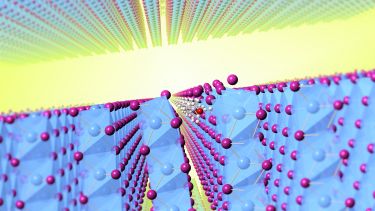Multiscale Materials Modelling
Computer modelling and simulation methods allow us to study and predict material formation, structures, properties and performance from the nano-scale to the macro scale.

Key contacts for Multiscale Materials Modelling Research:
- Professor John Harding
- Professor Hector Basoalto
- Dr Karl Travis
- Dr Colin Freeman
- Dr Julian Dean
- Dr Magnus Anderson
Our multiscale materials modelling research covers our five main research themes, as well as Modelling Methodology Development.
Biomaterials and Tissue Engineering
In this area, we use simulations to explore the interface between molecules and material systems, which controls many of the processes in living organisms, materials fouling and the spread of infection by germs. These simulations examine: how nature produces shells, bones and teeth and how we can replicate these processes; how cells and bacteria are able to bind to surfaces and form biofilms; the structure of molecular systems – such as monolayers and proteins.
Nanomaterials and Nanoengineering
The understanding of nanoscale materials and device performance bridges the fields of advanced characterisation, sub-nm microscopy, nanomanipulation, and atomistic modelling. The Sheffield NanoLAB and Modelling centres undertake developments of new methods and applications across a wide range of materials fields, including nanocomposites, ceramics, semiconductors, metals and biomaterials.
Nuclear Engineering
Modelling and simulation allows us to understand the behaviour of materials in extreme conditions, such as those found in nuclear reactors and nuclear waste disposal applications. We can look at how materials react to exposure to radioactive materials, without the need to handle the materials themselves.
Advanced Structural Materials
Our work examines the structure and energetics of alloy formation in metallurgy and can be used to predict potential mixes and their properties.
Functional Materials and Devices
We use modelling and materials simulation methods to study and predict the functional properties of materials with a particular focus on magnetism electrical characterisation. These simulations are able to explore the behaviour of systems with chemical and structural changes.
Methodology Development
While many off-the-shelf simulation software packages play a key role in the Materials Science and Engineering community, new research often requires new methods of simulation. The development of new simulation methods and codes helps the research group to tackle novel research areas.
